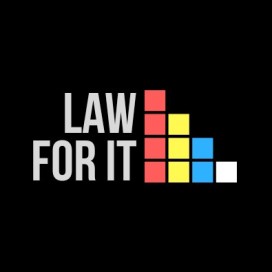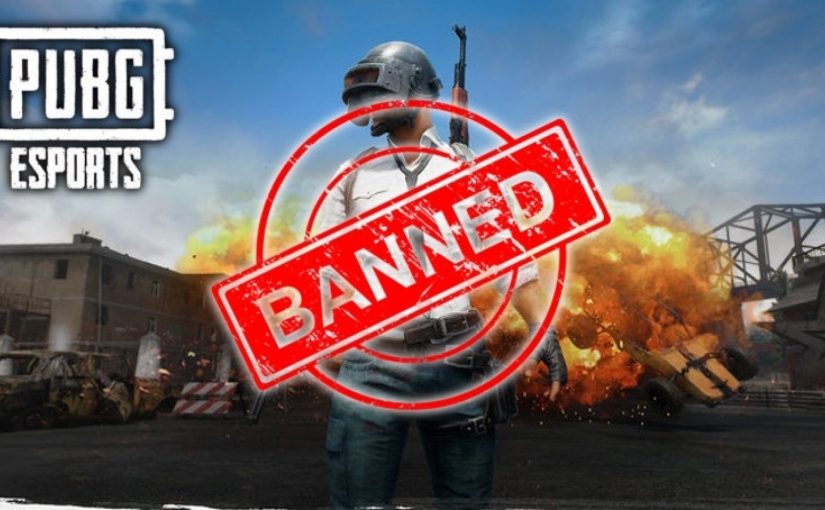PlayerUnknown’s Battlegrounds (PUBG) is one of the most popular online multiplayer games in the world. It has almost 400 million players base to play the game worldwide. The game is a standalone game in which up to hundred players parachute onto an island and collect weapons and equipments to kill others. The players have to avoid getting killed themselves. The available safe area of the game’s map decreases in size with time, pushing surviving players to tighter areas to force encounters. The last player or team surviving wins the round.
On 11th April 2019, the Gujarat High Court dismissed a Public Interest Litigation (PIL) petition filed by the Internet Freedom Foundation (IFF) which challenged the ban imposed on playing of PlayerUnknown’s Battlegrounds (PUBG), by at least six Gujarat Police departments.
Hearing the IFF’s petition, the HC bench comprising of the Chief Justice Anant S Dave and Justice Biren Vaishnav observed that they “are not satisfied that the scope of the present writ petition falls under the ambit of Public Interest Litigation”.
Public Interest Litigation means litigation introduced for the protection of the public interest. It is litigation introduced in a court of law, not by the aggrieved party but by the court itself or by any other private party. It is not required, for the exercise of the court’s jurisdiction., that the person necessarily should be the victim of the violation of rights. However, the person filing the petition must prove to the satisfaction of the court that the petition is being filed for a public interest and not just as a frivolous litigation.
Whereas in a separate PIL petition seeking ban against the PUBG, The Bombay High Court has issued a direction to the Ministry of Electronics and Information Technology (MEIT) to assess and review online game PUBG and take an action if any “objectionable content” is found.
The Gujarat HC’s order
During March, following a letter from the home department, notably several police departments of Gujarat issued notifications of banning PUBG on the orders of Commissioners under Section 144 of the Code of Criminal Procedure. The orders were issued on the ground that it results in violent behaviour among youngsters and affects their studies. According to several reports, teenagers who were found playing this online game were arrested under Section 188 of the Indian Penal Code.
Section 144 of the Code of Criminal Procedure gives State Governments the power to
It is the case of the IFF’s petition that the ban is arbitrary and unreasonable as it is violating Articles 14, 19 and 21 of the Constitution of India.
The impugned order banning PUBG has been contended by the IFF’s petition as a violation of the fundamental right to liberty under Article 21. According to IFF’s petition, the ban is a disproportionate invasion of privacy due to the following grounds:
- The ban does not serve any of the legitimate purposes mentioned in Section 144 CrPC, because persons arrested for playing the game are not engaging in any violent or aggressive behaviour.
- The ban, which carries the threat of arrests and criminal prosecution, is “patently unsuitable method of promoting psychological, social and educational well-being of adolescents and young adults”.
- “Further, there is no evidence to suggest that the negative effects of PUBG are severe enough to endanger human life or health”.
The petition further challenges the ban as infringing several freedoms guaranteed under Article 19 on following grounds:
- PUBG provides in-game text and voice chat feature which are used by players to form “meaningful bonds through team play and recreation. Therefore, the ban on game violates players the right to freedom of speech and expression guaranteed by Article 19(1)(a).
- PUBG is a team game and players assemble in public places to play PUBG in teams. The petition contends that such ban denies players the right to peacefully assemble in public spaces guaranteed by Article 19(1)(b).
- There are “professional PUBG competitions” that are held at world stage and “award large cash prizes” and hence is “a source of livelihood for individuals”. The ban violates the right to practice any profession or occupation under Article 19(1)(g).
The petition further contends that the order of the police is in excess of its powers and is arbitrary under Section 144 of CrPC. The ban is arbitrary as it “cannot be invoked merely based on the remote possibility of a threat”. The banning order is a form of “moral panic” based on unverified data showing ill effects of PUBG.
The Section 144 of CrPC resides as the sole occupant under the chapter of ‘temporary measures to maintain public tranquillity’ and gives State Governments the power to issue orders for immediate remedy in urgent cases of nuisance or apprehended danger.
From a bare reading, the relevant portion of Section 144 can be carved out into three basic elements:
- The authority to issue orders: lies with the District Magistrate, a sub divisional magistrate or any other Executive magistrate specially empowered by the State Government in this behalf.
- The grounds on which S. 144 can be invoked: The reasons include: a)sufficient ground, b) requirement for immediate prevention, and c)speedy remedy to prevent a likely obstruction, annoyance or injury to any person lawfully employed, or danger to human life, health or safety, or a disturbance of the public tranquility, or a riot, or an affray.
- The intended recipient: After determining sufficient ground and through a written order, the authorized can direct any person to abstain from a certain act or to take certain order with respect to certain property in his possession or under his management.
The IFF previously before the filing of this petition, on 14th March 2019, has also issued an appeal in public for revoking the Section 144 orders and cease criminal prosecutions following the ban.
During the hearing, the Hon’ble Gujarat HC did not agree with the submission of the IFF and rejected the PIL. However, the HC has mentioned that the individuals who have been arrested for playing PUBG may approach the High Court themselves. According to IFF, they have anticipated such a concern in their petition and has noted that “young college students who have been arrested may not have the resources and support to withstand protracted litigation against the Police department”.
The Bombay HC’s order
Hearing a PIL, that seeks a ban on PUBG in schools, Bombay HC’s bench comprising of Chief Justice Pradeep Nandrajog and Justice NM Jamdar has directed the Secretary of the IT Ministry to review and assess the game and take action against the service providers if any objectionable content is found.
The PIL filed by 11-year old Ahad Nizam, represented by his father, contends that the popular online multiplayer game promotes immoral conduct such as “violence, murder, aggression, looting, gaming addiction and cyberbullying”, thus should be banned.
The PIL seeks directions to be issued to the State Education Department to ban PUBG in schools forthwith. It also sought directions to be issued to the Ministry of Electronics and IT, Government of India to form an Online Ethics Review Committee to monitor such content from time to time.
The Court has adjourned the case and posted it for hearing after vacations.
In light of the above two judgments, the blog will explore the tussle between regulations and eSports. Keep checking the posts to know more.

